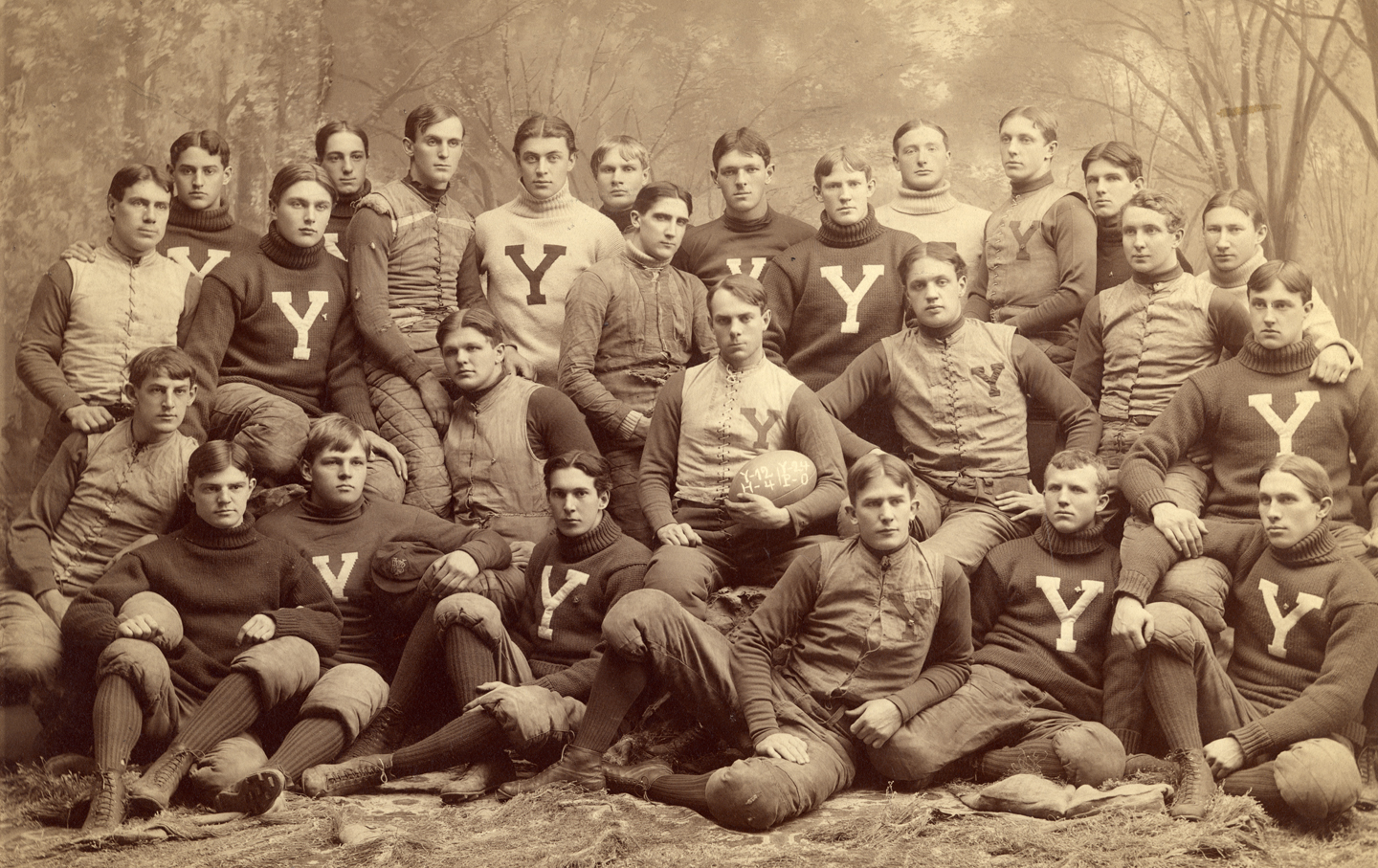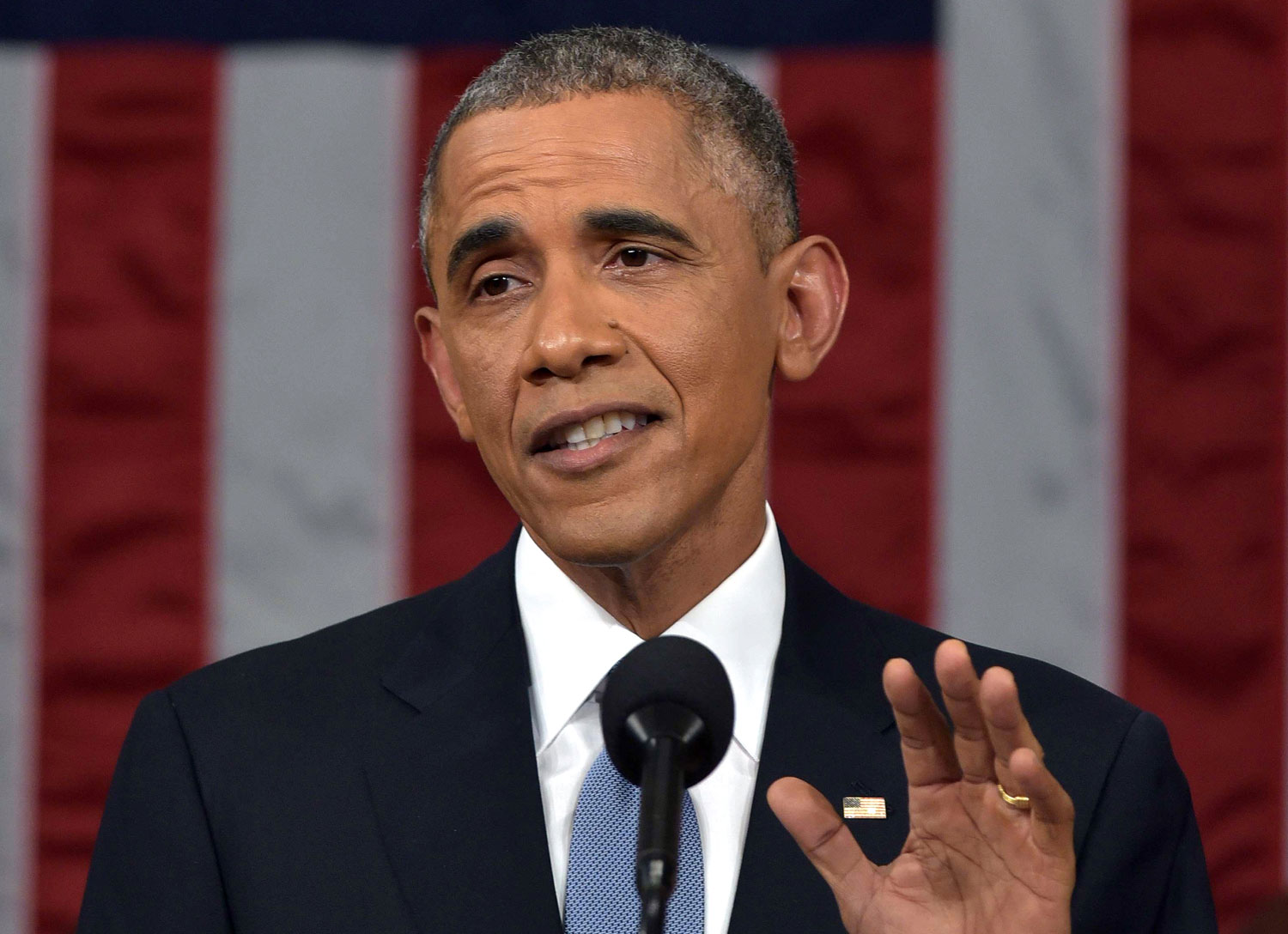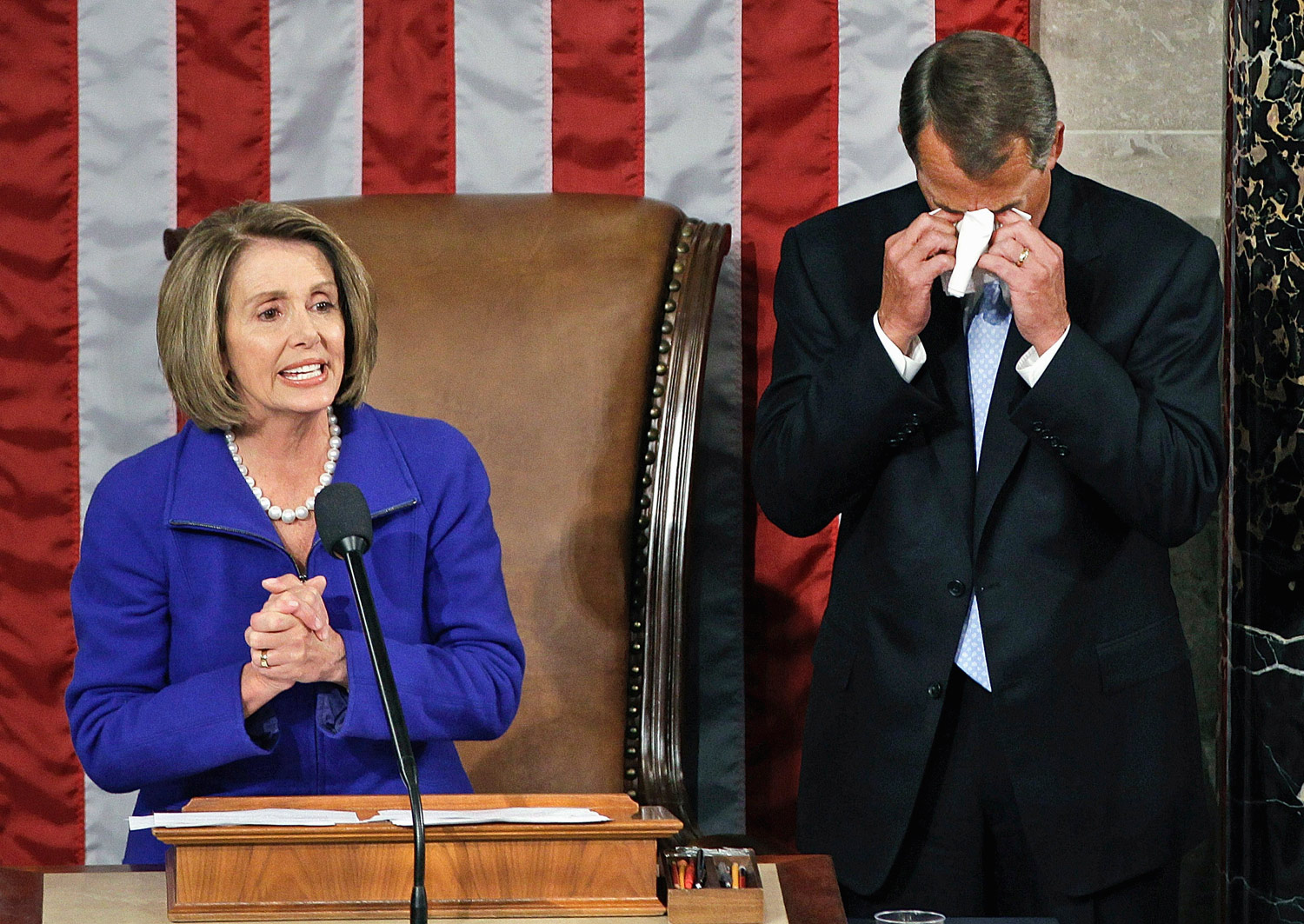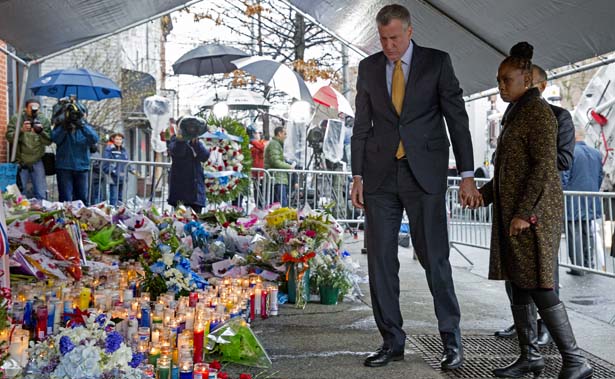
We Have Been Talking About Football’s Brutality for 120 Years We Have Been Talking About Football’s Brutality for 120 Years
American parents should keep their sons out of the game.
Mar 23, 2015 / Books & the Arts / The Editors

A Contested Primary Is Good for the Candidates, the Democratic Party and Democracy A Contested Primary Is Good for the Candidates, the Democratic Party and Democracy
The issues that matter most to Americans won’t be adequately explored by a coronation of Hillary Clinton.
Feb 25, 2015 / The Editors

Why Arming the Ukrainian Government Would Be Disastrous Why Arming the Ukrainian Government Would Be Disastrous
It would lead to more killing and end the last remnants of cooperation between Washington and Moscow.
Feb 11, 2015 / The Editors

Obama Gets His Mojo Back Obama Gets His Mojo Back
More than a wish list, he offers a framework for 2015 legislative fights and the 2016 campaign.
Jan 21, 2015 / The Editors
‘The Nation’ Turns 150 ‘The Nation’ Turns 150
For 150 years, The Nation has kept readers informed about what we called, in our very first issue, “the conflict of ages, the great strife between the few and the many, between privilege and equality, between law and power, between opinion and the sword.” Founded by abolitionists, The Nation has never shied away from taking sides in that conflict, and throughout this year, we will mark our 150th anniversary with a variety of special print and digital products, a nationwide series of live events, and a documentary by the award-winning filmmaker Barbara Kopple. At TheNation.com, a new daily feature called “The Almanac” highlights major historical events and The Nation’s coverage of them. In March, we’ll publish a history of The Nation written by our London correspondent, D.D. Guttenplan, followed in April by a special anniversary issue. Co-edited by Guttenplan and Katrina vanden Heuvel, the issue will feature archival essays by Henry James, Emma Goldman, James Baldwin, Ralph Nader and Martin Luther King Jr., to name just a few, alongside new contributions by Eric Foner, Toni Morrison, E.L. Doctorow, Michael Moore and many others. We’ll also be offering live-streamed Nation panel discussions, variety shows, film screenings and other events coast to coast, to share visions of a radically different future for our country and the world, and to put Nation readers in conversation with their favorite writers. Visit TheNation.com/150 for more information.
Jan 21, 2015 / The Editors

What Americans Should Do After Charlie Hebdo What Americans Should Do After Charlie Hebdo
We must resist the push to increase surveillance and repeat the foreign policy mistakes of the past.
Jan 14, 2015 / The Editors

Farewell, Betsy & Judy Farewell, Betsy & Judy
With this issue, we bid a tearful farewell to two longtime Nation staffers: executive editor Betsy Reed and copy chief Judith Long. Betsy joined the magazine as an editor in 1998, and over the next sixteen years her editorial vision guided The Nation through some of its most tumultuous and challenging, grim and joyous moments. Under her deft guidance, many of The Nation’s best writers produced landmark journalism, from the much-loved columns by Naomi Klein, Katha Pollitt and Eric Alterman, to Jeremy Scahill’s groundbreaking investigations into Blackwater and covert ops, Chris Hayes’s insightful essays about Washington politics and beyond. Her editorial leadership on a slew of widely praised special issues (from the debate over torture to New Orleans after Hurricane Katrina and the more recent “Bloomberg’s Gilded City”) has been remarkable, and her craft as one of the finest editors of her generation has made her a beloved figure among the many writers whose words, ideas and arguments she has sharpened and improved. Betsy leaves us to helm the Intercept, where she joins Scahill, Glenn Greenwald and Laura Poitras. We will miss her terribly, but we are also terribly eager to read the journalism that will emerge there under her leadership. We will also miss the wise and sharp-eyed copy-editing talents of Judith Long, who is retiring after nearly thirty-five years at The Nation. Judy arrived at the magazine before we had computers, cellphones or even fax machines—the era, as she puts it, of “the monster Compugraphic, with tubs of poisonous chemicals,” which spit out the type that was pasted up on boards (which were then sent to the printer by mail). Each week, Judy—kind and gracious, with a quiet yet wicked sense of humor—made war against cant, jargon, bad syntax, clumsy repetition and typos. Judy was also, for some twenty-five years, the editor of our Letters page, which she handled with consummate and joyous skill. We praise her for her many years of dedication to the magazine, and for making it much better than it could ever have been without her keen eye and ear.
Jan 7, 2015 / The Editors
Project Censored Honors Stephen F. Cohen Project Censored Honors Stephen F. Cohen
Project Censored, the media research, literacy and education organization established in 1976, is honoring Nation contributing editor Stephen F. Cohen for his articles on the crisis involving Ukraine and Russia, as well as the mainstream media’s hypocrisy in its coverage of the conflict. Cohen’s article “Distorting Russia: How the American Media Misrepresent Putin, Sochi and Ukraine” appeared in The Nation’s March 3, 2014, issue and will be included in the collection Censored 2015: Inspiring We the People.
Jan 7, 2015 / The Editors

Stop Blaming Protests for Police Killings Stop Blaming Protests for Police Killings
While New York City mourns, political opportunists point fingers—but we should really be talking about reforms that would keep everyone safe.
Dec 23, 2014 / The Editors

Why Ferguson Burns Why Ferguson Burns
Angry protesters are seeking justice for Michael Brown—and much more.
Nov 25, 2014 / The Editors
